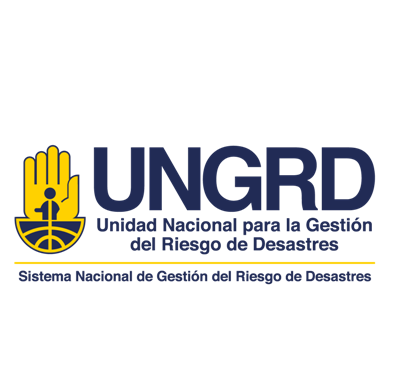
Colombia National Unit for Disaster Risk Management (UNGRD)
We are the Unit of the Presidency of the Republic that directs, guides and coordinates Disaster Risk Management in Colombia, strengthening the capacities of public, private and community entities, and society in general, with the explicit purpose of contributing to the improvement of people's quality of life and sustainable development, through the knowledge of risk, its reduction and the management of disasters associated with phenomena of natural, socio-natural, technological and unintentional human origin. The main goal of the National Unit for Disaster Risk Management of Colombia (UNGRD by its initials in Spanish) is to lead the implementation of Disaster Risk Management, while responding to the national Sustainable Development policies, and to coordinate the functioning and continuous development of the National System for Disaster Risk Management. The UNGRD has as part of its main functions to coordinate, promote and strengthen capacities for risk knowledge, risk reduction and disaster management, and to propose and articulate policies, strategies, plans, programs, projects, and national procedures of disaster risk management, in the frame of the National System for Disaster Risk Management (SNGRD created by Law 1523 in 2012). It is the set of public, private and community entities, of policies, regulations, processes, resources, plans, strategies, instruments, mechanisms, as well as information related to the subject, which is applied in an organized manner to guarantee risk management in the country. The SNGRD´s objective is to carry out the social process of risk management to offer protection to the population in the Colombian territory, improve safety, well-being, and quality of life, and contribute to sustainable development.
portal.gestiondelriesgo.gov.co